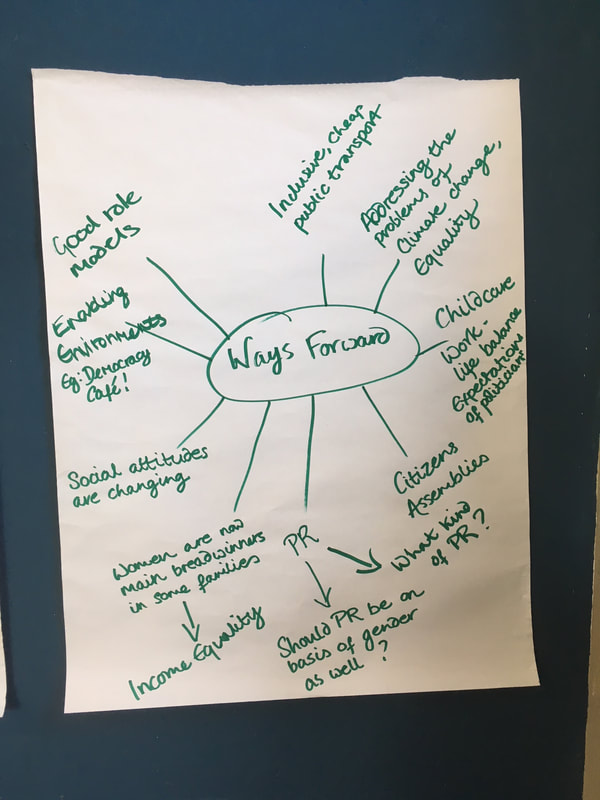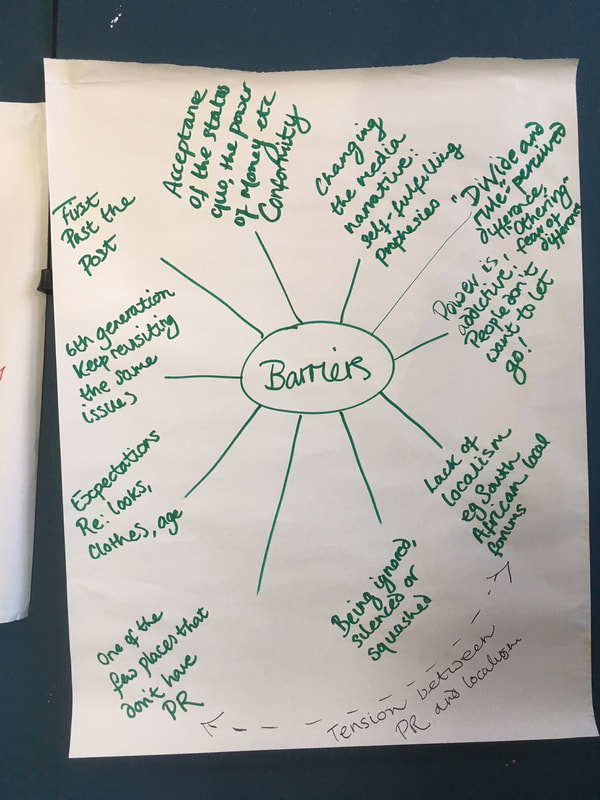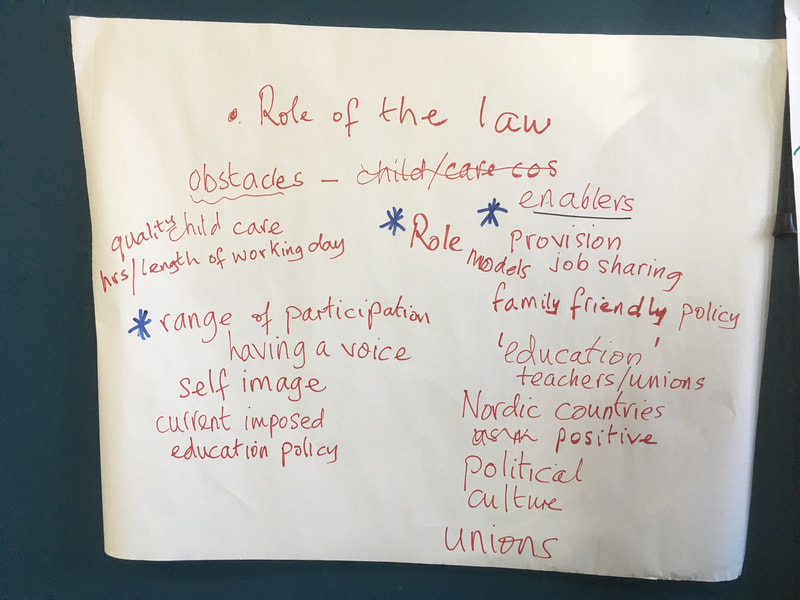Gender Democracy was the topic for discussion at the fifth meeting of the Oxford Democracy Café on Saturday 9 March.
Report of the meeting, and summary of small group discussions.
Continuing our concerns about our current democratic political systems, and to chime with International Women’s Week, our topic for this Café was Gender Democracy
In particular we considered
⦁ How do we get a democratic system which reflects the gender balance of society?
⦁ Would more participative forms of democracy help to achieve gender democracy?
⦁ What systems elsewhere deliver gender democracy?
We were a smaller group than usual, with only one male contributor. This puzzled us given that gender applies to both women and men, and that many of the advantages of a better gender balance in politics at all levels is of concern to men too.
The usual format of small groups, plenary and report back session was followed.
In the small groups many issues were raised, with data being available from a variety of sources; in particular a table showing the percentage of women MPs in countries around the world. In the UK with the first past the post system only 32% of Westminster MPs are women, which puts us 39th in the league table (see link below). In comparison many countries with proportional representation return more women to parliament.
The effects of under-representation of women in parliament on the public policy agenda and the articulation of women’s interests was discussed, as women legislators are more likely to raise distinctive concerns affecting women. When considering the use of PR one group considered extending the application of it to include ensuring that the proportions of those elected reflected the 51% / 49% gender balance in the country.
To summarise their discussions the two groups came up with quite similar analyses, identifying barriers/obstacles to gender democracy, and ways forward/enablers, with one group stressing the role of the law as significant as both a barrier and enabler.
Barriers/obstacles
Ways forward/enablers
Report of the meeting, and summary of small group discussions.
Continuing our concerns about our current democratic political systems, and to chime with International Women’s Week, our topic for this Café was Gender Democracy
In particular we considered
⦁ How do we get a democratic system which reflects the gender balance of society?
⦁ Would more participative forms of democracy help to achieve gender democracy?
⦁ What systems elsewhere deliver gender democracy?
We were a smaller group than usual, with only one male contributor. This puzzled us given that gender applies to both women and men, and that many of the advantages of a better gender balance in politics at all levels is of concern to men too.
The usual format of small groups, plenary and report back session was followed.
In the small groups many issues were raised, with data being available from a variety of sources; in particular a table showing the percentage of women MPs in countries around the world. In the UK with the first past the post system only 32% of Westminster MPs are women, which puts us 39th in the league table (see link below). In comparison many countries with proportional representation return more women to parliament.
The effects of under-representation of women in parliament on the public policy agenda and the articulation of women’s interests was discussed, as women legislators are more likely to raise distinctive concerns affecting women. When considering the use of PR one group considered extending the application of it to include ensuring that the proportions of those elected reflected the 51% / 49% gender balance in the country.
To summarise their discussions the two groups came up with quite similar analyses, identifying barriers/obstacles to gender democracy, and ways forward/enablers, with one group stressing the role of the law as significant as both a barrier and enabler.
Barriers/obstacles
- First past the post [FPTP]
- We’re the 6th generation – keep revisiting the same issues!
- Acceptance of the status quo
- Lack of localism
- Power, skewed
- Conformity
- Divide and rule – othering of difference
- Being ignored, silenced, squashed
- Negative media narratives
- Expectations of what politicians look like, feeds into self image
- Lack of quality childcare
- Length of working day
- Government imposed education policy stifles young people thinking independently
Ways forward/enablers
- Proportional Representation
- Role of the law to bring change
- Changing social attitudes
- Change the political culture
- Enabling environments – Democracy Café
- Good role models; Nordics, NZ
- Inclusive, cheap public transport
- Citizenship education
- Encourage trade union representation
- Voice
- Address issues of climate change, of income equality
- Citizens’ Assemblies
- Women as breadwinners need: Family friendly policy and Childcare
- Encourage fathers to participate equally
- Work-life balance; shorter hours
- Job sharing for politicians at all levels
In the groups and in the plenary discussion other allied issues raised were
⦁ Types of electoral reform and the pros and cons.
⦁ Positive action steps towards a better gender balance, such as quotas which are used in many countries in Africa such as Rwanda, and in South America; all-women short lists used by the UK Labour Party and reserved seats for women, for black activists, disabled and LGBT activists.
⦁ Women’s groups at all levels. Pros and cons
⦁ Women’s conferences at national and regional level.
⦁ The role of education
During the plenary it became clear that the range of issues to be discussed meant that we had only just begun to discuss the questions raised. The feeling was that we should revisit the topic of Gender Democracy regularly at International Women’s Day/week.
The report back session gave everyone a chance to hear about the setting up of the ODC Citizens’ Assemblies subgroup. At the initial meeting of those interested the decision was made that following Oxford City Council’s declaration of a Climate Emergency the subgroup would support the City Council to hold Oxford’s first ever citizens’ assembly on climate change. There is now a separate page on the ODC website for information and updates on this group.
LINKS:
Women in parliaments, world league table. UK is 39th.
http://archive.ipu.org/wmn-e/classif.htm
https://www.electoral-reform.org.uk/campaigns/women-in-politics/
https://voxeu.org/article/electoral-gender-quotas-fail-empower-women
https://www.idea.int/data-tools/data/gender-quotas/country-view/154/35
https://researchbriefings.parliament.uk/ResearchBriefing/Summary/SN01250




